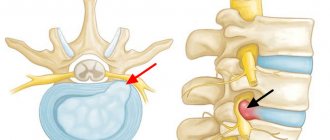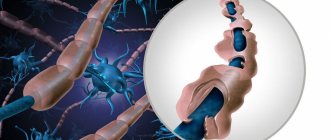Treatment of a nervous breakdown at the Brain Clinic is one of the priorities. This is due to the high psycho-emotional load of modern man. The nervous system of most people cannot stand it and it needs to be helped to cope and adapt to these stresses. We use the most modern hospital replacement methods of restorative medicine to stabilize a person’s neuropsychic activity.
In outpatient care and day hospital treatment, rehabilitation therapy of higher nervous activity is prescribed, which can be expressed in the use of various methods of psychotherapeutic, medicinal or physiotherapeutic assistance. If necessary, the techniques can be combined with each other in various versions.
Correct and complete diagnosis is the basis for curing a person from an existing illness.
Call +7(495)-135-44-02
We help even in the most severe cases, when previous treatment did not help
| Initial consultation and examination 2,500 | Treatment and rehabilitation therapy from 5,000 |
Diagnosis and treatment of nervous breakdown
Our goal is to provide you with the correct medical assessment of your nervous breakdown and, above all, to put your mind at ease. Do not panic, these conditions can be successfully treated, especially when a person promptly seeks help from a specialist.
When receiving medical care, a qualitative assessment of the general condition of the entire human nervous system, and not just the mental sphere, is necessary. Therefore, the diagnosis of such conditions should be carried out by doctors of related specializations: a neurologist and a psychotherapist or a psychiatrist. The position of some doctors that in such situations only a psychotherapist or a psychiatrist is completely wrong. It is very important! It is necessary to determine the main true cause of the malfunction of the nervous system, and not just its mental component. Once the cause is correctly identified, the doctor can prescribe appropriate measures to get rid of it.
Unfortunately, nervous breakdowns can also pose hidden dangers. In some cases, they carry complications in the form of various bodily ailments, affecting various parts of the brain. Successful treatment requires a good diagnostic base, which Brain Clinic has. The outcome of the disease depends on the completeness and quality of diagnostic measures. We recommend starting treatment for a nervous breakdown as early as possible. It is not uncommon for a patient to only need a one-time visit to a doctor and follow simple recommendations at home.
Manifestation of a nervous breakdown
- temporary behavioral disorders;
- panic attacks;
- neuroses;
- phobias;
- depression (decreased mood);
- asthenic conditions;
- sexual disorders.
All of this is a list of symptoms of a person’s painful condition and are not final diagnoses and do not reflect the true reason for the formation and manifestation of these sensations.
Complaints during a nervous breakdown
- Make complaints about your physical health, but continue to work and perform your duties;
- Avoid social obligations and mope;
- Changes in habits: eating, sleep and rest patterns, hygiene, etc.
- Violation in the sexual sphere (loss of satisfaction, decreased libido, lack of desire, etc.);
- Decreased background mood (depression);
- Sleep disorders (insomnia, drowsiness, feeling of lack of sleep);
- A number of other unusual or dysfunctional behaviors (irritability, aggression, nervousness) may occur.
Related complaints
- various pains in different parts of the body,
- headaches,
- fatigue,
- insomnia,
- feelings of anxiety,
- increased nervousness and irritability.
In this case, the following diseases may become aggravated: diseases of the spine, diseases of the musculoskeletal system, diseases of the gastrointestinal tract, diseases of the cardiovascular system.
Types and symptoms
Emotional lability (instability) is divided into two types: impulsive and borderline. The borderline type is characterized by the following factors: a highly developed, sometimes even violent, imagination; excessive impressionability; mobility of cognitive perception; affective lability; inability to adequately deal with life's difficulties - any obstacle that stands in the way, any failure and mistake, is perceived painfully and painfully.
This condition is also called unstable psychopathy, and it borders on a serious mental disorder - schizophrenia. Mental instability of the borderline type begins to emerge during puberty. It is at this age that one’s own desires take precedence over generally accepted rules and norms of behavior. Emotional instability of this type in adolescents is manifested by restlessness, mood swings, inattention and frustration.
A person with borderline emotional instability usually cannot normally perceive all the trials that fate throws at him. And it is not at all surprising that such a character leads a person to alcoholism, drug addiction or crime. Sometimes the development of a hysterical or depressive state is observed.
People with a borderline type of mental instability have a highly developed sense of attachment, so they have practically no independence. They also tend to threaten their loved ones with suicide, enter into frequent conflicts, and create scenes of jealousy.
People with emotional instability of the impulsive type are characterized by excessive excitability. Many irritating factors have a strong impact on them. They are firmly convinced that the whole world is up in arms against them, that the villainous fate throws only trials, and the people around them wish them only harm. Children with this type of mental instability are usually capricious, touchy, they tend to throw tantrums and show aggression, both verbal and physical.
In cases where a person with such personal qualities fails to become a leader, he withdraws into himself, withdraws, and becomes angry. He is characterized by demonstrative inappropriate actions and frequent attacks of anger.
Main symptoms of a nervous breakdown
- Irregular heartbeat - you may feel that something is wrong with your heart. You think that you are seriously ill, but examinations are unlikely to convincingly confirm this.
- muscle tension/soreness
- sticky hands, excessive sweating
- dizziness or unsteadiness
- trembling and internal shaking are the most uncomfortable symptoms of a nervous breakdown because you worry that people might notice it
- upset stomach and intestines
- increased fatigue - energy quickly runs out and fatigue sets in, all energy is used in an attempt to cope with the crisis.
- exhaustion, weight loss
Common mental symptoms
- panic, fears and phobias
- inability to cope with the material (feeling of decreased intelligence, feeling of “dullness”)
- sexual problems - loss of libido, libido, impotence
- sleep disturbances—not being able to fall asleep, waking up frequently in the middle of the night, not being able to go back to sleep, thoughts that keep you from falling asleep
- alienation from loved ones - patients sometimes describe this as “living in a bubble.”
- Character/Personality changes - Irritability or outbursts of anger, strange behavior, loss of sense of identity, depersonalization.
- Hypochondria - It seems that health is in danger, and it is necessary to look for different doctors to treat imaginary diseases. They even agree to operations, but do not go to a psychotherapist.
- difficulty concentrating, lack of perseverance
- depression, neurotic conditions, increased anxiety levels
These symptoms often make a person think they are going crazy. That’s why it’s so important to start treating a nervous breakdown as early as possible.
Symptoms of burnout
Emotional burnout is a progressive syndrome; it is often extremely difficult to notice its first signs and predict the further development of the disorder. The psychological state changes qualitatively gradually, without sudden jumps, incrementally. Every year, emotional burnout covers more and more areas of professional activity. If previously the symptoms of the syndrome were experienced only by those who are forced to work within the framework of constant interaction with other people, today emotional burnout is diagnosed even among housewives. As the disorder progresses, the following signs may appear:
- Anxious thoughts - a person begins to doubt his professional suitability, fear excessive responsibility, doubt about a prosperous future
- Loss of interests - over time, those activities or hobbies that previously brought pleasure, helped to distract, cease to be important and meaningful
- Physical ailments – emotional burnout is characterized by physiological disturbances; most often people complain of nagging muscle pain, eye discomfort, appetite and sleep disturbances
- Excessive irritability, apathy, reluctance to interact even with the closest people - is explained by an unconscious desire to conserve the remaining energy
- Decreased self-esteem.
Fatigue is a normal and understandable state for the body. Emotional burnout is characterized by duration and the accumulation of symptoms, which over time become noticeable both to the person himself and to others. It is important to diagnose the symptoms of the disorder in time and prevent their further development - independently or with the help of specialists.
Typical emotional manifestations of a nervous breakdown
- tearfulness – close to tears, easy to cry. Whether you are a man or a woman.
- guilt
- feeling of loneliness
- feeling of worthlessness, mediocrity
- be/feel "Paranoid"
These are just a few of the most common symptoms of a nervous breakdown. In fact, there are many, many more of them.
What does a nervous breakdown feel like?
Most often, people feel a nervous breakdown after some kind of shock.
Depending on the severity of stress a person experiences, it can greatly affect mental and even physical well-being.
If a person is on the verge of a nervous breakdown or is experiencing “professional burnout,” then any word can affect his state of mind. People often experience a feeling of worthlessness or uselessness, their condition sucks deeper and deeper and leads to manifestations of paranoia, depression, obsessive negative thoughts and other changes in mental health.
What is a nervous breakdown?
Nervous breakdown is not a medical term and does not indicate a specific mental illness or condition. But this does not mean that such a condition is normal or physiological and does not require the organization of high-quality assistance to the person. On the contrary, such conditions require the organization of high-quality medical care with a complete diagnosis of the state of the nervous system.
Such a person’s description of his condition may indicate hidden mental health problems, and often requires particularly increased attention and even urgent medical attention. Since it is against the background of a nervous breakdown that various, more complex mental disorders can form. Signs and symptoms of a nervous breakdown or burnout syndrome are a sign that you have exhausted your mental and physical resources, they are depleted and require outside help. Burnout syndrome does not mean that you are crazy! Regardless of the symptoms that appear.
This is a turning point, a borderline moment. How your nervous system reacts, will it be able to withstand such large overloads. If you manage to help your brain in time and correctly, so that no mental illness begins to develop.
We hope that we can help you understand what happens at such turning points with the human nervous system.
Signs of a nervous breakdown always vary from person to person and depend on the cause, psycho-emotional status, culture, education and gender.
The concept of a nervous breakdown does not generally mean that a person is no longer able to function normally.
Burnout syndrome
On this page we take the position of the common use of the expression “I’m having a nervous breakdown” and from the position of many years of medical practice we will reveal this concept.
You've probably heard of burnout syndrome and wondered what it is? So let me explain. This is a term coined by psychologists to denote a state of exhaustion of nervous activity. This condition is popularly described as a nervous breakdown.
You may feel like you're going crazy right now, but you're not. These are just your sensations that are formed by the brain. We can help you recover. But this will not happen overnight, it will take some time.
The term "nervous breakdown" is sometimes used to describe a stressful situation in which someone becomes temporarily unable to function normally on a day-to-day basis.
This is usually well understood when the demands of life become physically and emotionally overwhelming. In the past, the term covered many different mental disorders, but is rarely used today. More often it is used in everyday life and implies a certain psychophysical discomfort of a person, and not a specific mental state.
How to fight
Chronic fatigue, decreased ability to work, loss of interest in life, apathy, a feeling of hopelessness - all these are symptoms of emotional burnout. Constant internal tension, unfavorable living and working conditions, daily stress, excessive workload, unfulfilled dreams directly affect the development of the syndrome and the time required to eliminate it. When you notice the first signs of burnout, it is important to take appropriate action immediately.
- Rest – every person needs a complete and healthy rest, physical relaxation, and relief from nervous tension. It is important to be able to distribute your own resources in such a way that the time allocated for work does not require sacrificing leisure, and vice versa. At work, it is advisable to take short breaks every time you feel emotional stress. This could be breathing exercises, minor physical exercises, or just listening to pleasant music - this will have enough energy for the whole day. At the same time, it is not advisable to neglect vacation or often stay overtime at the workplace.
- Systematization as a means of organizing a large number of things will help you plan your work schedule correctly - don’t be nervous, don’t rush, but methodically and consistently follow the plan, highlighting the highest priority tasks and minor ones that bring less benefit than they require energy costs.
- There is no limit to perfection. Continuous self-development is a good quality of a person, but in an attempt to outperform all colleagues, acquaintances and idols from TV, even if possible, it will not be at such a price. Self-improvement should bring pleasure, to some extent, even relaxation, but not be based on feelings of envy and an irresistible desire to gain dubious authority.
- Accepting mistakes. Appropriate perfectionism and an uncontrollable pathological desire to do the job perfectly are polar different concepts. It is important to understand that mistakes are part of any development; they are useful experiences that often do more good than harm. In an effort to complete a task perfectly, a person spends much more time correcting, redoing, and improving the project, sacrificing other job responsibilities and his own natural needs for rest.
- Versatility. It is not advisable to focus your whole life solely on the sphere of professional employment. It is important to pay attention to hobbies, social contacts, dreams come true, spending leisure time in pleasant company, mastering new knowledge, skills and abilities not related to direct job responsibilities.
The most important rule in the fight against emotional burnout is the correct placement of life priorities. If a person is positive, knows how to dream and realize diverse desires, then he is unlikely to ever be at risk.
Causes of a nervous breakdown
Here are the most common reasons that can lead to a nervous breakdown (burnout syndrome):
- Sudden disaster
- Divorce or separation
- Injuries, possibly a series of injuries
- Drip-drip effect – long-term negative psycho-physical factors (long-term illness, unfavorable working conditions, family troubles, etc.)
- Stress related to work, family, political and economic situation, negative information received from newspapers, TV, the Internet, etc.
- Violation of the daily routine
- Alcohol and other psychoactive substances
More often than not, people are caught off guard, unaware that life could have fallen apart. They might never have thought that they were unable to cope with these factors themselves or were prone to breakdown of higher nervous activity.
Condition assessment
If you think you are experiencing a nervous breakdown, you should seek help from a psychotherapist or psychiatrist. Which will carry out the necessary diagnostic actions.
In the Middle Ages, a nervous breakdown meant melancholy. In the early 1900s, it was known as neurasthenia. From the 1930s until about 1970, this condition became known as a nervous breakdown and involved the formation of a mental disorder under enormous psychological pressure or mental and physical exhaustion.
Nervous breakdown is not a clinical term. Nervous breakdown is an imprecise and unscientific term that is no longer used in modern medicine. Modern science has removed the term “nervous breakdown” from its circulation and introduced a more precise definition of the state of the nervous system, which more fully characterizes the human condition and the causes of the disease. Psychologists replaced this term with the more sophisticated term “Burnout Syndrome,” which also has nothing to do with medicine. However, doctors have to reckon with everyday expressions and terms of psychologists.
Today, such popular concepts as a nervous breakdown and burnout syndrome can mean a wide variety of borderline mental conditions, such as depression, neuroses, asthenia, stressful situations and other mental conditions associated with difficulties in relationships, health problems, after an accident, or the death of a loved one person, dismissal, business failure, etc.
Practice shows that about a third of the population feel themselves on the verge of a nervous breakdown or directly experience a state of actual internal burnout, exhaustion, and inability to control themselves. Research shows that more than half of the population will experience some form of mental disorder during their lifetime, and some will experience the condition several times.
Possible complications after stress
- anxiety disorders;
- depression;
- neuroses;
- psychosomatic disorders;
- phobias.
Here is a list of the main, most common mental states that most often develop in a person after exposure to stress. Unfortunately, they are formed precisely because people did not turn to a psychiatrist in time. Later, these disorders become a chronic condition, which is then very difficult to get rid of.
Help with stress in the clinic
Our clinic was the first to draw attention to stress and post-stress disorders as a conflict between reality and a person’s internal perception of it. We have developed a new approach to getting rid of acute conditions under stress and preventing possible complications. Our methods are based on both the elimination of biological changes of a metabolic nature, and on the de-actualization of the destructive influence of factors through their awareness and inclusion in one’s world system. If there are too many resonating factors, then highlighting the priority ones and leaving the rest as secondary.
We have been successfully using comprehensive anti-stress programs for more than 20 years, which have helped hundreds of people.
You can undergo an anti-stress program and qualitatively improve your standard of living by signing up by calling the numbers listed on the website.
Find out the cost of consultation
Treatment for a nervous breakdown
A calm, supportive conversation is essential for your state of mind at times like these. But nothing can replace professional help from a psychotherapist or psychiatrist.
Manifestations of a nervous breakdown or burnout syndrome should not be ignored!
Of course, if you are experiencing these sensations, then you need to consult a psychotherapist in person. You shouldn’t hope that everything will go away on its own without leaving a trace. This is wrong. The resulting nervous breakdown or burnout syndrome will not leave you on its own. It may temporarily lose the strength of its manifestation (symptoms will decrease), but with the slightest negative effect, it will manifest itself again, but with greater force, and then there is a high probability of the need for hospitalization. Hospitalization, due to burnout or a nervous breakdown, is always very painful for a person. Why take it to the extreme when this problem can be solved more painlessly and much faster by undergoing high-quality outpatient treatment for a nervous breakdown. Depending on the reasons for the formation, the treatment of a nervous breakdown is based.
Drug treatment for a nervous breakdown
People who have suffered a nervous breakdown often need to take medication.
In most cases, the use of nootropic drugs, vitamins, and amino acids is sufficient. Less commonly, the use of antidepressants, sedatives and other specific drugs used in the treatment of a nervous breakdown is required.
Many of these drugs are not intended for long-term and permanent use. Some of them can be addictive. That is why monitoring by a doctor is required constant and very attentive.
Antidepressants – These drugs are mainly used for depression. You should be careful when prescribing them, since some types of depressive conditions preclude the use of these drugs.
Anxiolytics - These drugs are mainly used to relieve anxiety. Some anti-anxiety medications can be addictive.
Antipsychotics - these drugs are used mainly in the treatment of serious nervous breakdowns and mental disorders with more profound disorders of the metabolic processes of the brain. Their use requires particularly careful diagnosis and special monitoring throughout the entire period of treatment.
Mood stabilizers - These medications are commonly used to treat mood disorders.
Nootropics, vitamins, amino acids are necessary for the restoration and nutrition of nervous tissue cells. Inappropriate prescriptions can also cause serious complications.
Aromatherapy, Yoga and Massage Therapy. — These therapeutic procedures complement the treatment. They are used to help the patient relax. The body and mind will be given relief from the ravages that constant agitation has had on them.
Psychotherapy for nervous breakdown
Psychotherapeutic treatment for nervous breakdown is often preferred by people. However, this is often not enough due to a deficiency of amino acids and other essential ingredients for the functioning of nervous tissue. This type of treatment is usually used to treat a nervous breakdown or burnout syndrome. It is recognized as an effective tool in helping patients overcome the underlying psychological problems that led to their breakdown.
Psychotherapy is most effective in the final stages of therapy and during the rehabilitation period.
Hypnotherapy for nervous breakdown
Hypnosis is used to achieve several goals. To help the patient relax and as a diagnostic procedure. Hypnosis can also be used to rewire the brain.
It should be noted that this technique has many different contraindications. This is due to the specific impact of the procedure on a person’s mental activity. Therefore, hypnotherapy should be prescribed with caution and in the absence of contraindications.
Causes
The main causes of emotional instability:
Constant emotional stress that can arise as a result of psychological trauma, constant failures in life, stressful situations, due to lack or excess of attention, too strict taboos or, conversely, permissiveness.
Emotional disorders of a somatic nature. It can occur due to a lack of necessary vitamins and microelements in the body (in children this affects learning and attentiveness); due to hormonal imbalance (nervous disorder typical of women); changes in hormonal balance with age (menopause).
In case of emotional instability for the reasons listed in the first group, consultation with a psychologist or psychotherapist is necessary. In the second case, changing your diet and taking the necessary vitamins will help get rid of nervous instability.
When to start treatment for a nervous breakdown
- You (suddenly) become overexcited - You sleep very little and poorly, there are sleep disturbances, your mood often changes, you speak at a rapid pace, you began to spend more in the store, make unnecessary, impulsive purchases, you feel confused thoughts, a feeling of inexplicable anxiety. All this can happen after you have been feeling depressed and sad for some time.
- There is a history of mental health problems and you feel you are sliding towards a mental disorder.
- You have thoughts of suicide
If you are concerned about someone else, then you really need to make sure that person gets professional help as soon as possible. It is necessary to immediately take measures to organize therapy. In such cases, the condition requires active therapy, which is best started in a hospital setting. After the condition has stabilized, it is better to transfer the person to home mode.
Consultation with a psychologist - description of the service
Psychologist's advice No. 4.
Frequent harbingers of a nervous breakdown are: weakness, chronic fatigue, increased irritability, and the appearance of insomnia. Therefore, the appearance of all of these disturbances in general health and behavior may be a signal that there are serious problems.
Psychologist's advice No. 5.
This condition cannot be allowed to take its course, since a nervous breakdown can cause disturbances not only in the mental state, but can also cause serious problems with other organs and systems of the body. Therefore, the prevention of a nervous breakdown is the key to normalizing the condition.
Psychologist's advice No. 6.
You need to rest, but if your vacation is not soon, give yourself 4 hours of daily rest, regardless of your business. In this case, rest can also be a change in activity. You need to change your daily routine. At this time, you should do more of what you like, receiving pleasure and satisfaction from it. Take time for your body, this could be baths with oils, massage or walks around the city (even though it’s winter).
Psychologist's advice No. 7.
Start getting your diet in order. Don't feel like eating? Start eating a little walnuts with honey (raises hemoglobin), drink kefir, your intestines should work. Eat a little bit at a time, don’t force it into yourself.
At the same time, you should not abuse food, since eating a lot is just as harmful as eating almost nothing.
You definitely need to find time for fun. Let there be more than one job in life. Let it be some kind of hobby that would relieve monotony and bring satisfaction.








